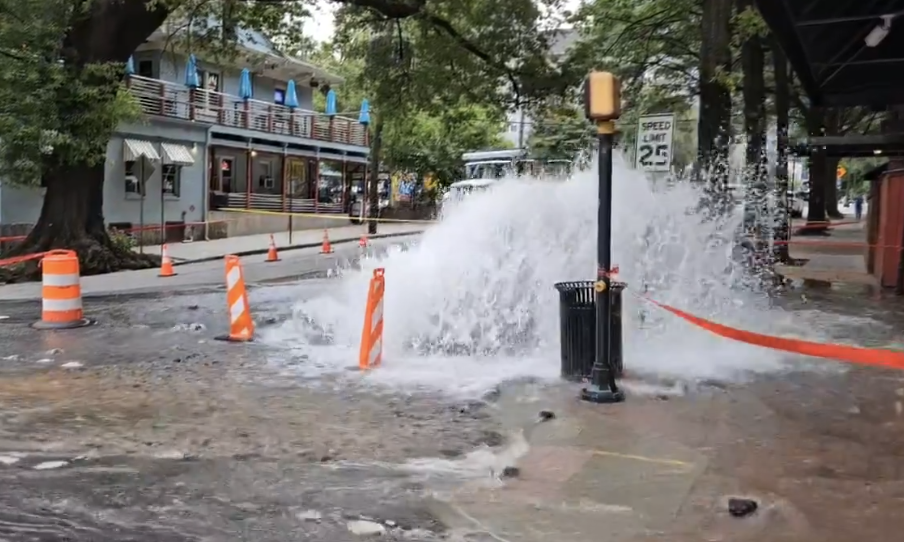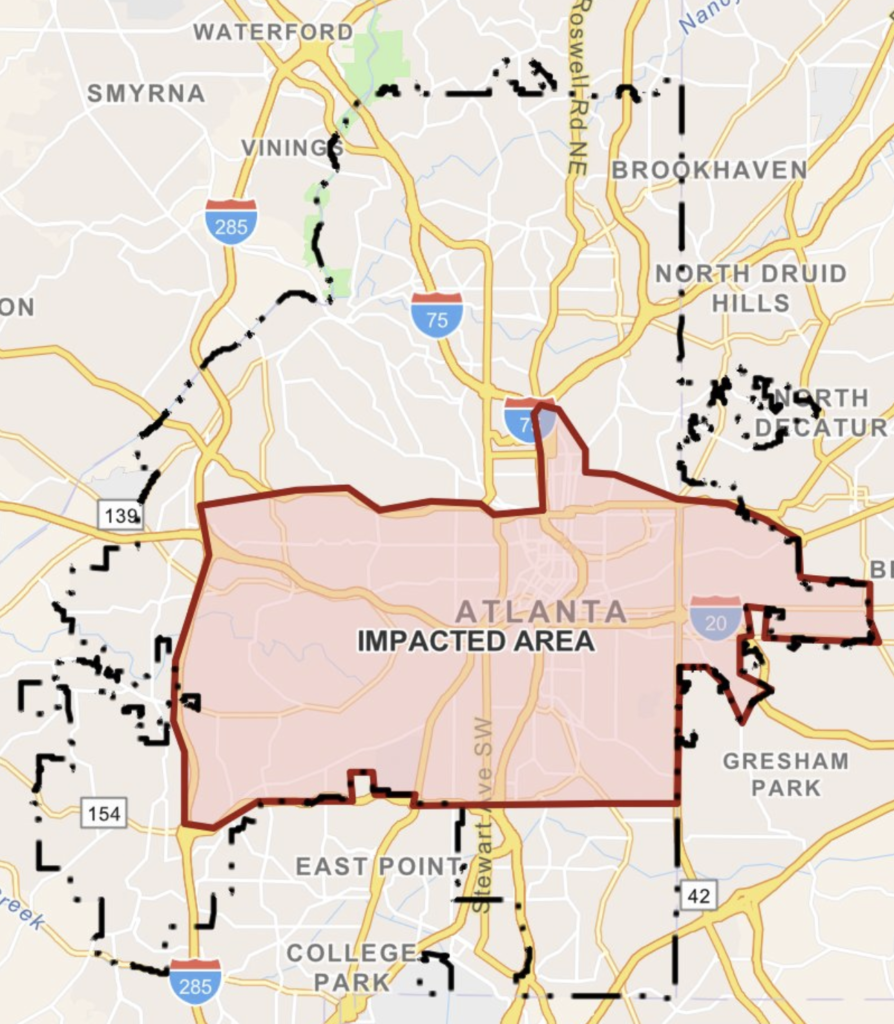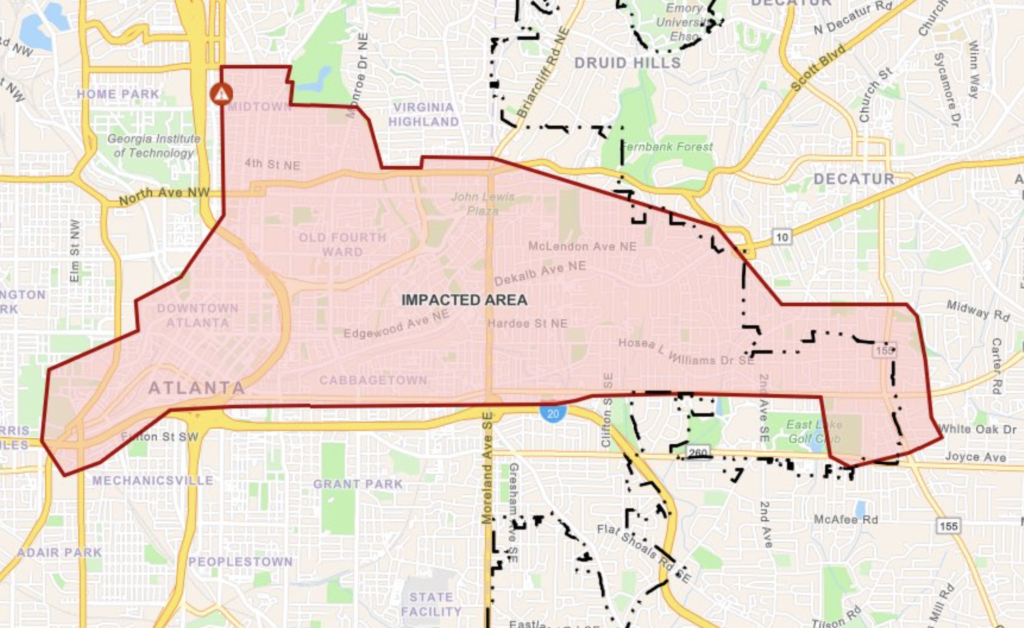Atlanta boil advisory is a critical public health notice that affects thousands of residents. It is essential to understand what it entails and how it impacts daily life. This advisory is issued when there are potential concerns about water quality, prompting residents to boil tap water before consumption. Staying informed is key to ensuring safety during such advisories.
Water quality issues can arise unexpectedly, and when they do, local authorities implement measures like boil advisories to protect public health. In Atlanta, these advisories are not uncommon, especially after severe weather events or infrastructure disruptions. Understanding the reasons behind them and how to respond is crucial for every resident.
This article will provide comprehensive insights into Atlanta boil advisory, covering everything from its causes to preventive measures. Whether you're a long-time resident or new to the city, this guide will equip you with the knowledge needed to stay safe during water-related emergencies.
Read also:Holly Sonders Nude Debunking The Myth And Exploring The Truth
Table of Contents
- Introduction to Atlanta Boil Advisory
- Causes of Boil Advisories in Atlanta
- Proper Boiling Procedure
- Impact on Daily Life
- Ensuring Water Safety
- How Long Does an Advisory Last?
- Preventive Measures
- Frequently Asked Questions
- Additional Resources
- Conclusion
Introduction to Atlanta Boil Advisory
An Atlanta boil advisory is a public health measure implemented when there is a risk of contamination in the water supply. This means that residents are advised to boil tap water before using it for drinking, cooking, or brushing teeth. Such advisories are typically issued after events like water main breaks, power outages, or natural disasters that may compromise water quality.
Why Are Boil Advisories Important?
Boil advisories play a critical role in safeguarding public health by minimizing the risk of waterborne illnesses. Pathogens such as bacteria, viruses, and parasites can enter the water supply during disruptions, making it unsafe for consumption without proper treatment.
Who Is Affected by Boil Advisories?
All residents within the affected area are required to adhere to the advisory. This includes households, businesses, schools, and other establishments that rely on municipal water supplies. Special attention should be given to vulnerable populations, such as infants, the elderly, and individuals with weakened immune systems.
Causes of Boil Advisories in Atlanta
Boil advisories in Atlanta can be triggered by various factors, including:
- Water main breaks
- Loss of water pressure
- Natural disasters (e.g., floods, storms)
- Planned maintenance work
Understanding the specific cause of an advisory helps residents anticipate its duration and take appropriate actions.
Water Main Breaks
Water main breaks are a common cause of boil advisories in Atlanta. When a water main ruptures, it can introduce contaminants into the water supply. Repairing these breaks often requires shutting off water pressure temporarily, which increases the risk of contamination.
Read also:Gali Golan Leaked Uncovering The Truth Behind The Viral Sensation
Proper Boiling Procedure
To ensure water safety during a boil advisory, follow these steps:
- Fill a pot or kettle with tap water.
- Heat the water until it reaches a rolling boil.
- Maintain the boil for at least one minute.
- Let the water cool before use.
Boiling is the most effective method to eliminate harmful pathogens from water.
Impact on Daily Life
Atlanta boil advisories can significantly impact daily routines. Residents must adjust their habits to ensure safe water usage. This includes:
- Using boiled or bottled water for drinking and cooking.
- Boiling water before preparing infant formula.
- Avoiding tap water for brushing teeth.
Businesses may also face operational challenges, requiring them to implement alternative water sources until the advisory is lifted.
Ensuring Water Safety
In addition to boiling, there are other ways to ensure water safety during an advisory:
- Using certified water filters.
- Purchasing bottled water for essential needs.
- Following official updates from local authorities.
Staying informed and prepared is key to managing the situation effectively.
Water Testing
Local water utilities conduct rigorous testing to confirm water safety before lifting an advisory. This process ensures that all potential contaminants have been eliminated.
How Long Does an Advisory Last?
The duration of an Atlanta boil advisory depends on the underlying cause and the time required to address it. Typically, advisories last between 24 to 48 hours, but they can extend longer in complex situations.
Factors Affecting Advisory Duration
Several factors influence how long an advisory remains in effect, including:
- The extent of the water system disruption.
- The time needed for repairs and testing.
- The size of the affected area.
Residents should remain patient and continue following guidelines until the advisory is officially lifted.
Preventive Measures
While some causes of boil advisories are unavoidable, there are steps that can help minimize their occurrence:
- Regular maintenance of water infrastructure.
- Investment in advanced water treatment technologies.
- Public education on water conservation and safety.
By prioritizing these measures, Atlanta can reduce the frequency and impact of boil advisories in the future.
Frequently Asked Questions
What Should I Do if I Accidentally Drink Untreated Water?
If you accidentally consume untreated water during a boil advisory, monitor yourself for symptoms of waterborne illnesses, such as nausea, diarrhea, or vomiting. Seek medical attention if any symptoms develop.
Can I Use Tap Water for Showering?
Yes, tap water can generally be used for showering during a boil advisory. However, avoid swallowing water and take precautions for infants and individuals with compromised immune systems.
Additional Resources
For more information on Atlanta boil advisories, consult the following resources:
- Atlanta Water Works Department
- Centers for Disease Control and Prevention (CDC)
- Georgia Environmental Protection Division
These organizations provide valuable insights and updates on water safety and related issues.
Conclusion
Atlanta boil advisories are an important public health measure designed to protect residents from waterborne illnesses. By understanding their causes, following proper procedures, and staying informed, you can navigate these advisories effectively. Remember to adhere to official guidelines and utilize available resources to ensure your safety.
We encourage you to share this article with others and leave your thoughts in the comments below. For more informative content, explore our other articles on Atlanta's water systems and public health initiatives.


